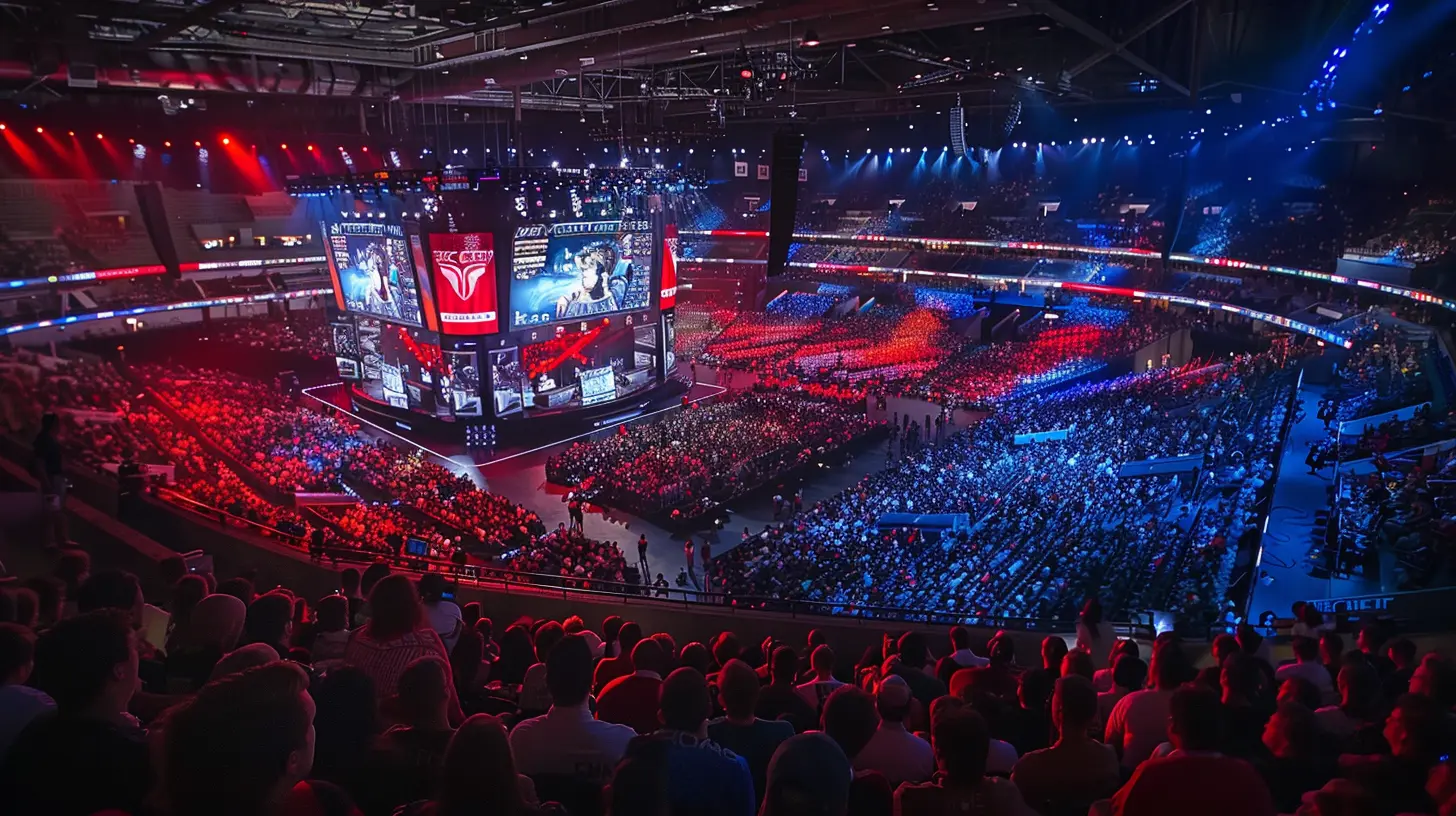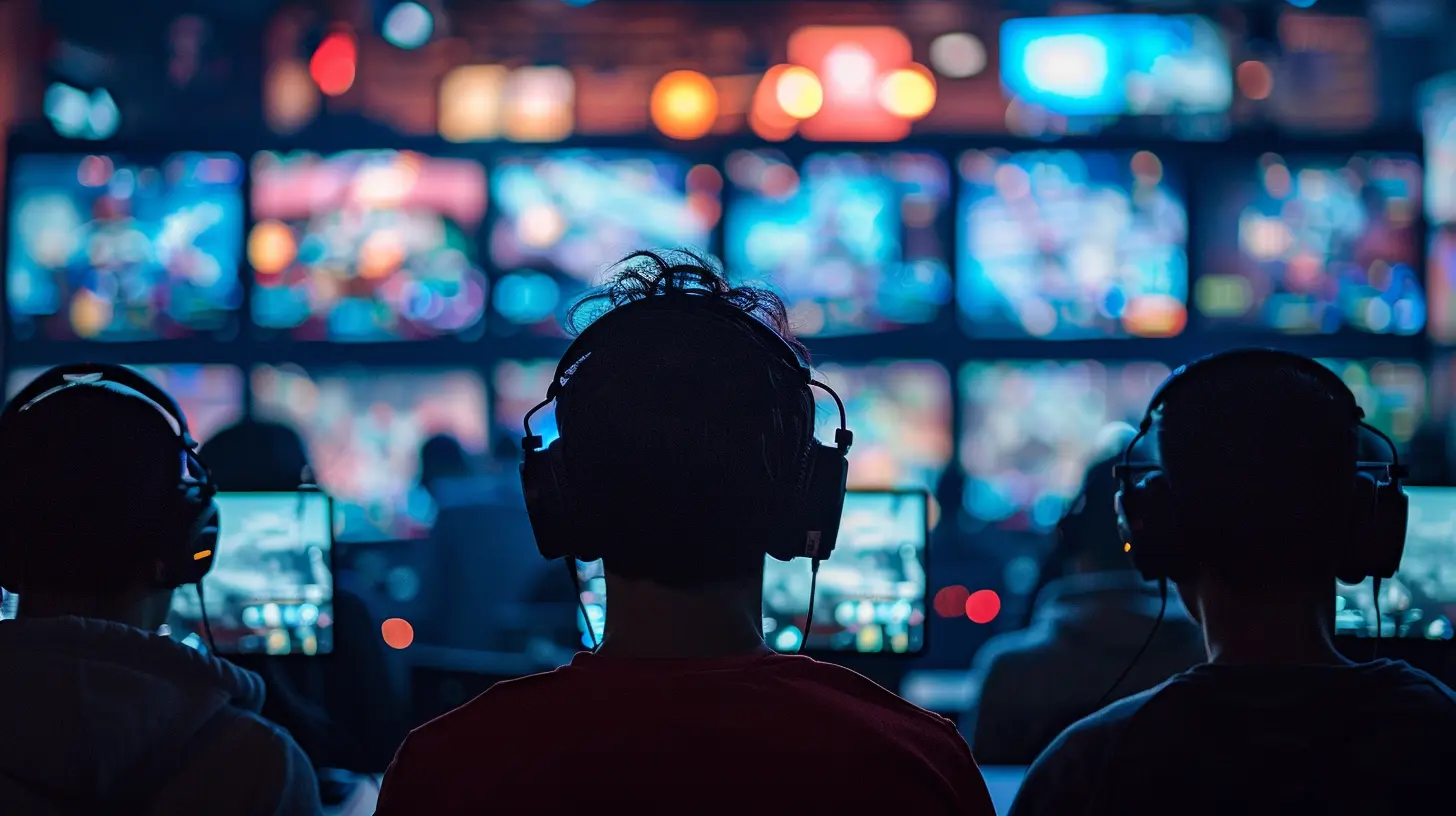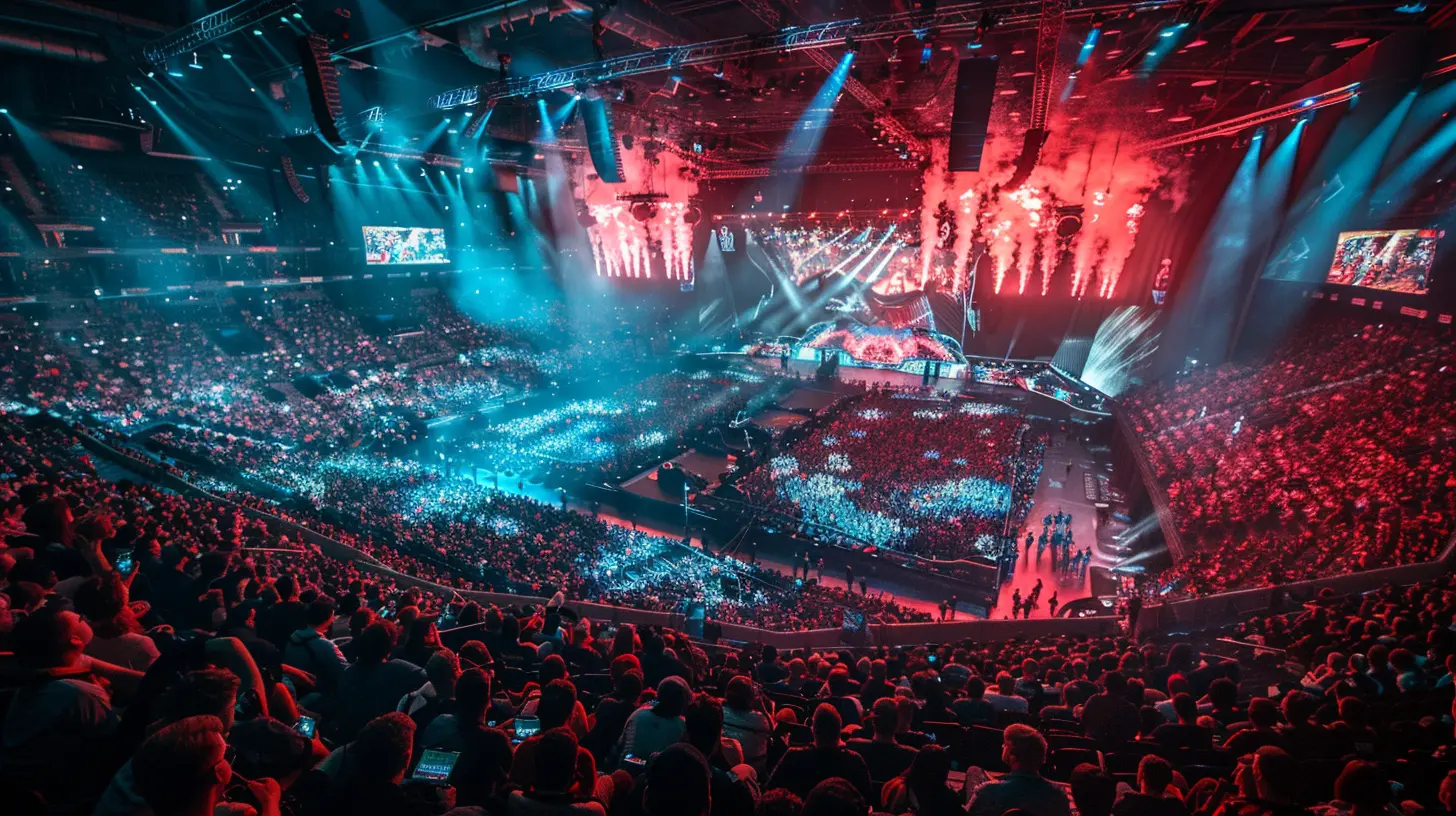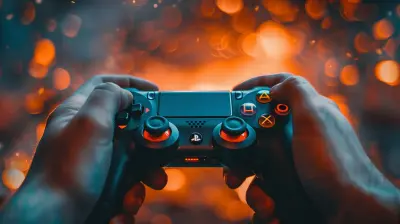The Psychology Behind Championship-Level Esports Competitions
8 May 2025
Imagine this: the stadium is packed with thousands of screaming fans, the players are locked into their screens with laser-sharp focus, and millions more are glued to their devices at home. The tension crackles in the air. This isn’t your average sporting event—it’s the world of esports. From League of Legends to CS:GO, championship-level esports competitions have grown into a global phenomenon. But what separates the good players from the elite? It’s not just mechanical skill or reflexes—it’s psychology.
Let’s dive deep into the fascinating mental battlefield behind these high-stakes competitions and uncover what it takes to thrive under pressure and be the best of the best.
The Role of Mental Resilience in Esports
Competitive gaming is not all about clicking heads and executing perfect strategies. Sure, these skills matter, but what truly defines a championship-level player is their mental resilience. What’s that, you ask? Think of it as a mental armor that helps players keep their cool when everything is on the line.Staying Cool Under Pressure
You know that heart-pounding, sweaty-palm feeling when your team is one point away from victory? Now imagine experiencing that on a global stage with tens of thousands watching your every move. That’s what these players deal with in every tournament. The best players have mastered the art of staying calm under immense pressure.How do they manage this? Mental conditioning. Many pro gamers work with sports psychologists to develop techniques like controlled breathing, visualization, and mindfulness. These tools help them keep their nerves in check during clutch moments. It’s no exaggeration to say that mental strength often makes the difference between a heartbreaking loss and a glorious victory.
Learning from Losses
Let’s face it: nobody likes losing. But in esports, losing can become a powerful teacher. Championship-level players don’t just sulk in their frustration; they reflect, analyze, and adapt. This ability to bounce back from failure is a cornerstone of mental resilience.Think about it like leveling up in a game. Every loss is like an in-game death: frustrating, sure, but also an opportunity to figure out what you did wrong, improve, and come back stronger. That’s the mindset top players carry. They see failure not as the end but as a stepping stone toward mastery.
Team Dynamics: More Than Just Individual Skill
Esports is often seen as a collection of solo heroes pulling off insane plays, but behind every flashy highlight reel is a tightly synchronized team. (Yes, even in games like Fortnite, where team play might not be front and center.) Team dynamics can make or break a championship run—and a lot of that comes down to psychology.Communication is Key
Ever wonder how pros manage to pull off those jaw-dropping coordinated attacks? It’s not telepathy (though that’d be cool); it’s communication. Teams spend countless hours practicing not just strategies but also how to talk to each other during games. Clear, concise, and calm communication helps them stay focused and adapt to rapidly changing situations.But here’s the kicker: too much chatter can actually hurt performance. The best teams strike a balance, knowing when to provide information and when to stay silent so everyone can focus.
Trust and Chemistry
You know how in movies, there’s always that ragtag group of misfits that somehow comes together to save the day? Esports teams are kind of like that. Trust and chemistry between teammates are crucial. If there’s even a hint of doubt or tension, it can spiral into poor decision-making and in-game chaos.Building trust takes time. Many teams bond outside of games—grabbing meals together, participating in team-building activities, or just hanging out. It’s not just about knowing your teammate’s playstyle; it’s about genuinely liking and trusting them as a person. When that bond is strong, it shows in the gameplay.
The Mental Impact of the Audience
Now let’s talk about the elephant in the room: the overwhelming presence of an audience. Whether it’s an arena full of chanting fans or a livestream with hundreds of thousands of viewers, the players are never truly alone. And trust me, knowing the world is watching adds a whole new level of psychological pressure.Overcoming Stage Fright
Even the most experienced players still feel a twinge of stage fright now and then. It’s natural. The trick is learning to harness that adrenaline instead of letting it paralyze you. Some players compare it to being an actor or performer. Once you step onto the stage, you’ve got to drown out everything else and focus on the task at hand.Fun fact: Some pros wear noise-canceling headphones not just to block in-game sound but to drown out the overwhelming cheers (or jeers) of the audience. It’s all about creating a mental bubble where they can maintain their focus.
The Double-Edged Sword of Fan Support
Having fans cheer you on can feel amazing. But it’s also a double-edged sword. If things go south mid-game, players might feel like they’re letting everyone down. The weight of expectation can either push you to perform your best—or crush you.To find that balance, many pros practice emotional detachment during games. It’s not about ignoring the audience entirely but keeping their emotions in check so they can concentrate on their gameplay. It’s like tuning out the world when you’re trying to beat that final boss—it’s just you, your skills, and the challenge ahead.
The Role of Focus and Flow States
Ever hear athletes talk about being "in the zone"? Well, esports players experience something similar. It’s called a flow state, and it’s basically when everything clicks—your reflexes feel lightning-fast, your decision-making is flawless, and time seems to slow down.What is Flow, and Why is It Important?
Flow happens when a player is completely immersed in the game, striking a sweet spot between challenge and skill level. If the game’s too easy, you get bored. Too hard, and you get frustrated. But when it’s just right, you enter that magical state of hyper-focus.Championship players spend years perfecting this balance. They know how to clear external distractions, manage stress, and fully commit their mind to the game. It’s like when you’re so engrossed in a game you forget the time—except for them, it’s a conscious practice.
Training the Brain for Focus
Achieving flow isn’t luck; it’s a skill that can be trained. Players often use mental exercises, like meditation or even memory games, to sharpen their focus. Think of it as hitting the mental gym—exercising those brain muscles to keep them sharp and ready for the high-stakes moments.The Underrated Power of Self-Belief
Lastly, let’s talk confidence. If you’ve ever gone into a match already assuming you’ll lose, you probably know how that story ends. Confidence—or the lack of it—can heavily influence performance. Championship-level players have an unshakeable belief in their abilities. It’s not arrogance; it’s trust in the work they’ve put in.Fighting Imposter Syndrome
Even among the best, imposter syndrome can creep in. "Do I really deserve to be here? What if I’m not as good as everyone thinks?" These doubts can be crippling. The solution? Rewiring negative thoughts into positive affirmations. Players remind themselves of their victories, their progress, and the sheer grind they endured to reach the top.Conclusion: The Mental Game is the True Battlefield
Esports is much more than flashy plays and fast reflexes. At its heart, it’s a mental game—a battle of wits, emotions, and focus. From building mental resilience to thriving under pressure, from mastering team dynamics to finding flow, the psychology behind championship-level esports is as intricate as the games themselves.So the next time you watch a pro player pull off an insane play, remember that it’s not just their fingers doing the work. It’s their mind—their ability to stay calm, focused, and resilient—that truly sets them apart.
all images in this post were generated using AI tools
Category:
Gaming EventsAuthor:

Avril McDowney
Discussion
rate this article
4 comments
Chantal Nguyen
This article brilliantly explores the intricate psychology of championship-level esports. It highlights how mental resilience, teamwork, and strategic thinking play crucial roles in a player's success. Understanding these psychological aspects not only enhances gameplay but also enriches fans' appreciation for the intense pressure and skill involved in competitive gaming. Great read!
May 13, 2025 at 3:24 AM

Avril McDowney
Thank you for your insightful feedback! I'm glad you found the exploration of psychological aspects in esports valuable. Your appreciation motivates me to delve deeper into these topics.
Kylie Miller
Exploring the mental resilience needed in esports reveals profound insights into competitive psychology.
May 12, 2025 at 2:55 AM

Avril McDowney
Thank you! Mental resilience is indeed crucial in esports, as it shapes how players handle pressure and setbacks, ultimately influencing their performance.
Iris Wells
Championship-level esports competitions reveal the intricate interplay between strategy, teamwork, and mental resilience. Understanding the psychological factors at play not only enhances players' performance but also enriches the audience's appreciation of the game. It’s a fascinating reminder that success often lies as much in the mind as it does in skill.
May 11, 2025 at 4:11 PM

Avril McDowney
I completely agree! The mental aspect is crucial in esports, shaping both player performance and viewer engagement. It truly highlights the depth of strategy and teamwork involved in achieving championship success.
Fallon Jacobs
This article insightfully explores the mental resilience and strategy involved in esports, highlighting why psychology is crucial for championship success.
May 10, 2025 at 4:19 PM

Avril McDowney
Thank you for your thoughtful comment! I'm glad you found the exploration of mental resilience and strategy in esports valuable. Psychology truly plays a vital role in achieving championship success.



